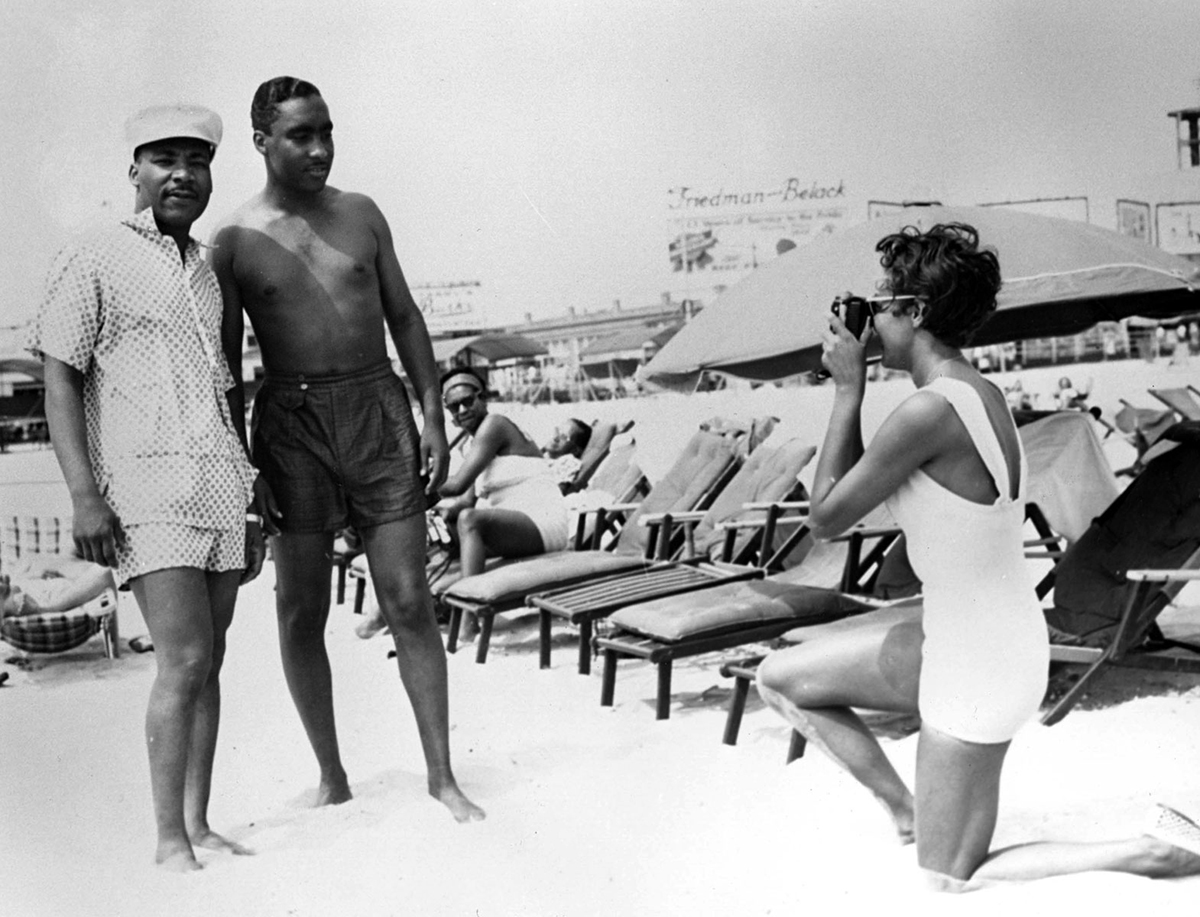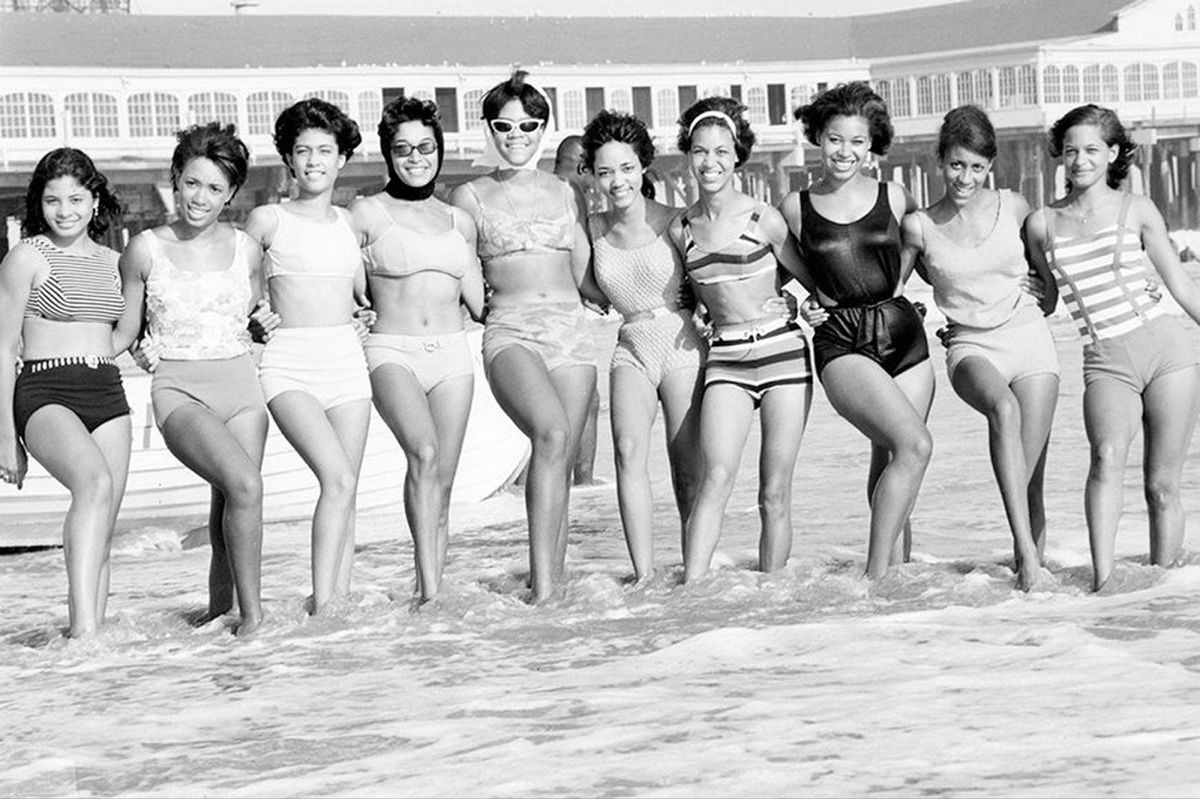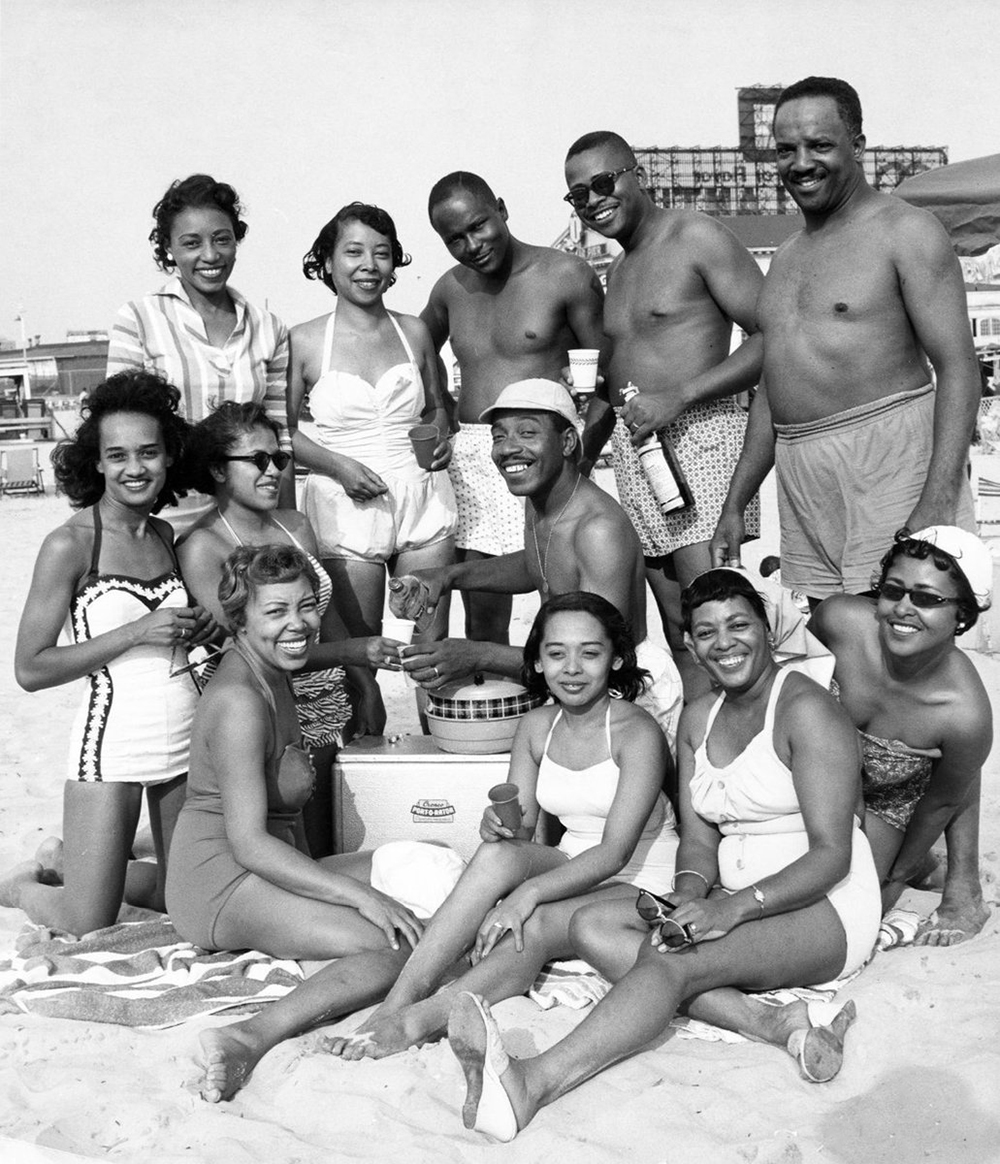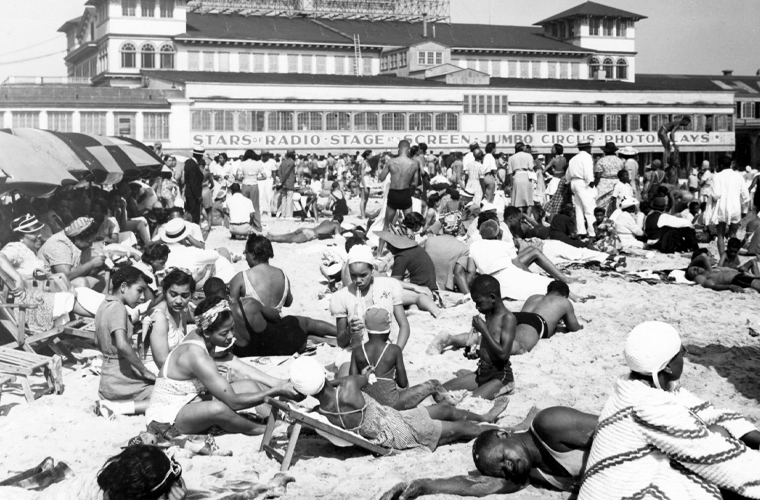Chicken Bone Beach is a historic landmark and cultural site in Atlantic City, New Jersey, that was significant in African-American history. The beach was located between Missouri and Kentucky Avenues and served as a popular destination for African-American vacationers from the 1900s to the 1950s. The name “Chicken Bone Beach” was coined due to the tradition of African-American visitors bringing fried chicken to the beach and discarding the bones in the sand, creating a distinctive crunch underfoot.
The early 1900s were a time of racial segregation in the United States, and Atlantic City was no exception. African-American visitors to the city were often relegated to the less desirable parts of town and were prohibited from enjoying the same amenities and public spaces as white visitors. However, Chicken Bone Beach provided a space where African-Americans could relax, socialize, and enjoy the seaside without being harassed or discriminated against.

The beach was initially known as Missouri Avenue Beach, but it became associated with the name “Chicken Bone Beach” in the 1930s when the area around the beach became a hub for African-American culture and entertainment. African-American visitors to the beach brought fried chicken with them and discarded the bones in the sand, creating a distinctive crunch underfoot. This tradition gave the beach its name and became a symbol of the unique African-American culture and experience at Chicken Bone Beach.
In addition to the beach itself, the area around Chicken Bone Beach was home to a thriving African-American community, with restaurants, nightclubs, and other businesses catering to African-American visitors. One of the most famous of these establishments was Club Harlem, a nightclub on Kentucky Avenue that hosted some of the most famous musicians and performers of the day, including Duke Ellington, Count Basie, and Billie Holiday.

Despite the segregation and discrimination that persisted in other parts of Atlantic City, Chicken Bone Beach became an important center of African-American culture and community. It was a place where African-Americans could come together, relax, and celebrate their unique cultural heritage. However, as the Civil Rights Movement gained momentum in the 1960s, segregation in public spaces began to be challenged, and Chicken Bone Beach began to decline in popularity. The beach closed in 1971, and much of the surrounding area was demolished in the 1980s.
Today, efforts are underway to preserve and commemorate the legacy of Chicken Bone Beach. In 1995, the Atlantic City Historical Museum opened an exhibit called “Chicken Bone Beach: A Place to Remember,” which chronicled the history and culture of the beach. In 2005, a historical marker was erected at the site of the former beach to commemorate its significance in African-American history. In 2011, the Chicken Bone Beach Historical Foundation was established to promote awareness of the beach’s cultural heritage and to advocate for its preservation.

In conclusion, Chicken Bone Beach was a historic African-American beach in Atlantic City that played an important role in African-American culture and community from the 1900s to the 1950s. It provided a space where African-Americans could relax, socialize, and enjoy the seaside without being harassed or discriminated against, and it became a symbol of the unique African-American culture and experience. Despite its decline in popularity and eventual closure, efforts are underway to preserve and commemorate the legacy of Chicken Bone Beach as an important piece of African-American history.

